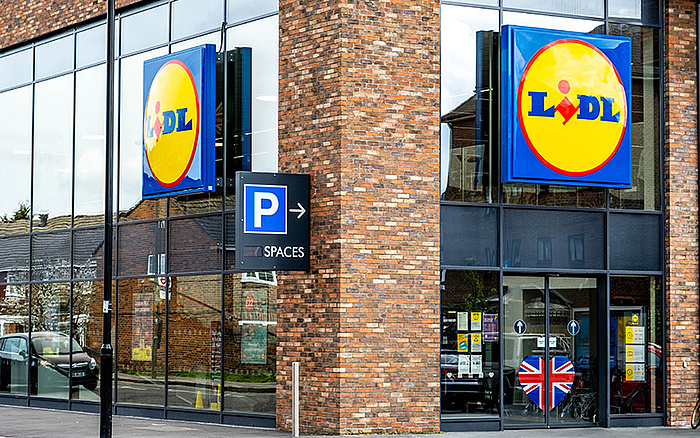
IP spring: European trials, tribulations and statistics
The air is buzzing with innovation and legal drama. For a start, the European Patent Office's latest report shows a record-breaking number of patent filings, highlighting Europe's push toward sustainable tech. Meanwhile, Lidl and Tesco have ended a trademark tussle and over in France, Google has been slapped with a €250 million fine for not playing fair with copyrighted content.
A hive of patenting activity
It has been over nine months since the Unitary Patent launched on June 1, 2023. Though it may yet be too early to decide whether the single grant for 17 European Union member states has delivered on its promise of a more streamlined filing and litigation system, initial figures are encouraging. The latest Patent Index from the European Patent Office (EPO) paints a picture of a continent bustling with IP activity and ripe with prospects.
Total patent applications have continued their strong performance in recent years, rising 2.9% from 193,627 in 2022 to 199,275 in 2023. Much of this growth can be attributed to a surge in filings originating from Asia, demonstrating both that region's technological innovation and the attractiveness of Europe as a market destination and protection venue. Specifically, applications from China increased by 8.8% and those from the Republic of Korea jumped a massive 21%. For comparison, filings from EPO states rose 1.8%, while those from the United States grew just 0.4% and Japanese applications fell 0.3%.
Inventiveness trends to one side, the rebounding in patents granted by the EPO is particularly striking. Between 2021 and 2022, this number fell dramatically from 108,799 to 81,754, only to recover almost fully during 2023 back to 104,609. Both the cause and remediation of this trough could be the introduction of the Unitary Patent and competent Unified Patent Court (UPC). In practical terms, the technical difficulties of late 2022 that delayed the beginning of procedures quickly gave way to an auspicious first showing.

The top five origin countries for European Patent filings in 2023 were the United States, Germany, Japan, China and the Republic of Korea. On a per-capita basis, Switzerland held on to its position as the most innovative country.
Thus, the Unitary Patent has seen noteworthy uptake even though it only became available mid-way through 2023. With that caveat, unitary effect was requested for 17.5% of all patents granted by the Office last year, or 18,344 in total. Almost two thirds of these came from EPO states (12,035), revealing the popularity of the Unitary Patent among local innovators. This figure represented 25.8% of all grants originating from those countries, with the next highest proportions being for proprietors in the United States and China, both at 10.9%. That said, the former's greater filing activity meant the absolute numbers of Unitary Patents received were 2,732 and 959, respectively.
The other key takeaways from the report are the remarkable performance of applications in digital communication technologies, up 8.6%, and electrical machinery, apparatus and energy solutions, up 12.2%. This trend is indicative of a wider movement across industries toward interconnectivity and end-to-end sustainable operation.
Checking out a supermarket clash
Courtroom battles involving supermarkets are almost as commonplace as the stores themselves, and the IP sphere is a prime location for such disputes. In the United Kingdom, what appeared to be a relatively straightforward claim of trademark and copyright infringement between competitors has come to a close with an unexpectedly mixed bag of results.
German discount supermarket Lidl filed suit against the United Kingdom's largest grocery retailer, Tesco, alleging trademark infringement, passing off and copyright infringement. At issue were outwardly similar logos used by the businesses. Lidl has used its yellow and red circle on a dark blue square as its primary logo since entering the market in 1994, while Tesco introduced signs for its "Clubcard Price" promotions in 2020, also consisting of a yellow circle on a dark blue background.
In April of last year, a judge for the High Court of Justice found for Lidl on its claims of copyright infringement, passing off and the infringement of its primary logo's trademark. At the same time, Justice Joanna Smith accepted Tesco's counterclaim that wordless versions of Lidl's trademark had been filed in bad faith and were thus invalid. Ruling that Lidl had adopted an abusive "evergreening" policy to avoid non-use sanctions, the judge added that she believed these marks were intended to be wielded as a "legal weapon."

The Lidl logo has not changed since the German supermarket entered the United Kingdom in 1994. In that time, it has garnered a 7.5% share of the local market compared to the 27.7% that Tesco currently holds. (Image source: iStock. Image credit: martinrlee)
This judgment was followed by a decision that an injunction against further copyright infringement should be granted even if the trademark and passing off claims ultimately failed in the event of a successful appeal. Predictably, an appeal was made, reaching its conclusion earlier this month.
On March 19, 2024, Lord Justices Lewison, Arnold and Birss handed down their decision, overturning the finding of copyright infringement and, consequently, any potential injunction. At the same time, the Court of Appeal (Civil Division) upheld Justice Smith's ruling of trademark infringement and passing off on the part of Tesco and trademark invalidity on the part of Lidl.
When copyright disputes involve works that are basic in execution, a hair's breadth can be the difference between a reproducing "substantial part" of an asset and merely having the same idea. However, regarding the trademark infringement at hand, even that hair could be split. In summing up his opinion on the appeal, Lord Justice Lewison quoted Lord Bridge of Harwich's prosaic commentary in the case of Reckitt & Colman Products Ltd vs. Borden Inc [1990].
"If I could find a way of avoiding this result, I would. But the difficulty is that the trial judge's findings of fact, however surprising they may seem, are not open to challenge. Given those findings, I am constrained […] to accept that the judge's conclusion cannot be faulted in law. With undisguised reluctance I agree […] that the appeal should be dismissed."
Though Lidl has prevailed on two out of three of its arguments, the retailer may have gotten more than it bargained for now that some of its trademark registrations have been invalidated.
Pardon my French when it comes to copyright infringement
Much less reluctant was France's Autorité de la concurrence (Competition Authority) to fine Google €250 million for non-compliance with binding legal commitments on IP. This imposition stems from Decision 22-D-13 of June 21, 2022, which enjoined four entities, here referred to simply as "Google": Google France, Google Ireland Ltd, Google LLC and their parent company, Alphabet Inc.

With the decline in print circulation, press agencies increasingly depend on internet services to reach their readership. The French law of July 24, 2019, was passed with the goal of enabling fair negotiations between media companies and digital hosting platforms.
The corporation agreed to pursue measures that would ensure publishers and press agencies had a clear remuneration framework for the use of their protected content by Google services. However, the Autorité found that the technology company had reneged on four of its seven commitments. As per a press release, these were to:
- Negotiate in good faith, based on transparent, objective and non-discriminatory criteria, within three months (Commitments 1 and 4);
- Provide press agencies and publishers with the information needed to transparently assess their remuneration for related rights (Commitment 2);
- Take the necessary measures to ensure that negotiations do not affect other economic relationships between Google and press agencies and publishers (Commitment 6).
As far as a legal timeframe is concerned, this latest fine comes on the heels of a €500 million sanction imposed on Google by the Autorité in July 2021. Though the larger penalty was also levied for failure to comply with measures intended to create a fairer online economy, the two events differ significantly in the relevance of artificial intelligence (AI) models.
Hence, this month's decision is partly informed by the development of Google's AI service, Bard. Publicly released in July 2023, Google had used copyrighted material to train Bard without informing the Autorité or the press agencies and publishers who owned the works. In a sadly recurrent theme, AI models have collided bitterly with the IP system, affecting both individual rights holders and large companies. A high-profile example is the New York Times' copyright lawsuit against Microsoft and OpenAI, filed in late December 2023.
The rise of AI in digital life appears inexorable at this stage, but the gap between technological advancements and legal protocols is only widening. Unfortunately, a highly competitive market has created an environment antithetical to the voluntary circumscription of AI, meaning oversight is urgently needed. In its absence, we can only expect much more in the way of penalties and court cases.
Filed in




